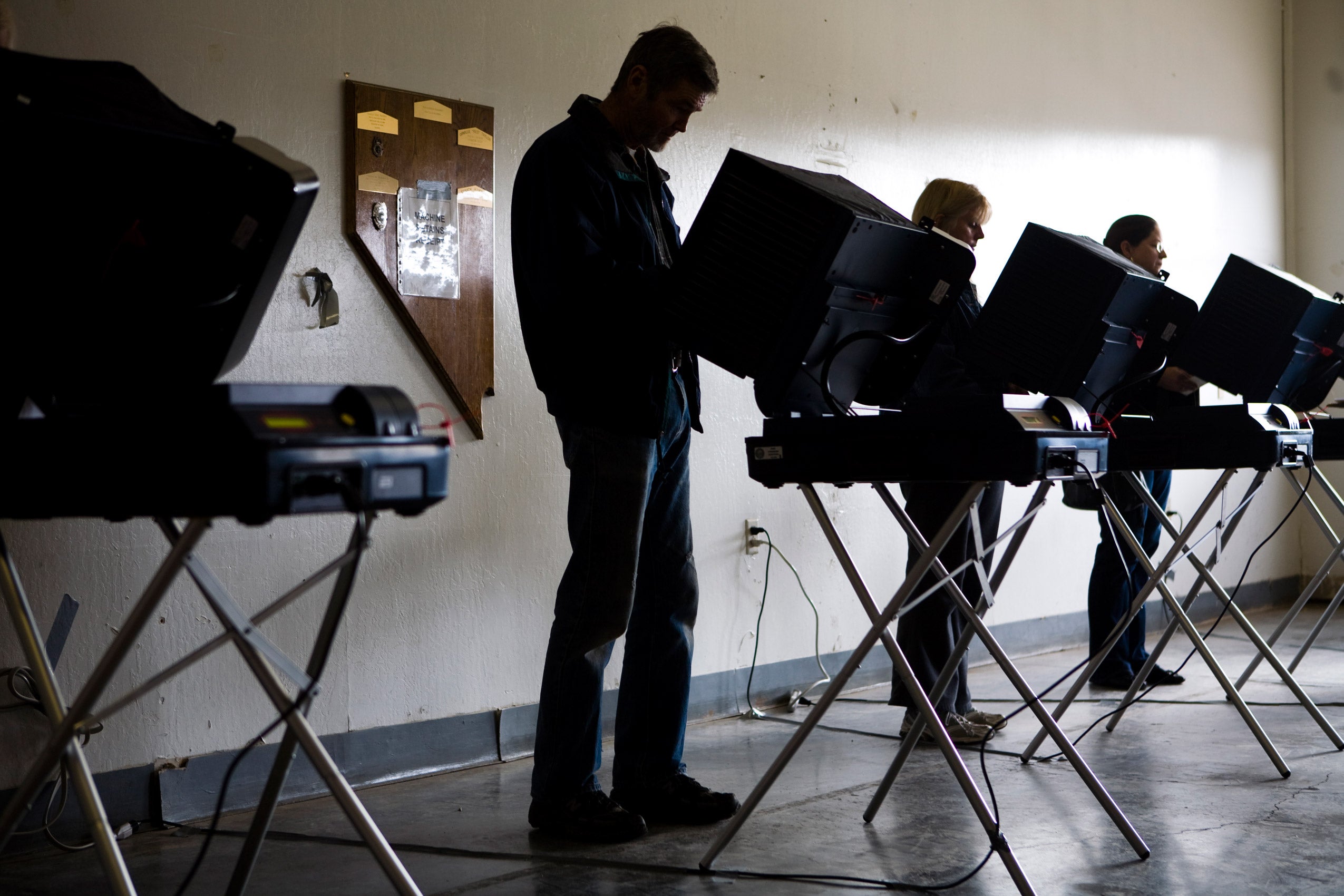In the fall of 2015 Harvard Law School kicked off a yearlong series of talks focusing on the discipline of Election Law, an area of law said to be concerned with ‘the law of politics and the politics of law.’ The series, sponsored by the Office of the Dean in conjunction with HLS Professor Charles Fried’s seminar on the topic, brought law professors and other academics and lawyers to the law school to present their insights into past, present and future challenges and changes within the discipline.
With the nation poised to choose its next commander-in-chief in a few short weeks, Harvard Law Today is offering a look back at what each of the slate of scholars from campus and beyond had to say about democracy, and about the challenges, conflicts and conundrums the process poses in the 21st century.
Charles Fried: Voting — A Festival of Democracy
If government is by the people, what justifies any regulation by the government of elections? Professor Charles Fried kicked off the Election Law series by focusing on the connection between democracy, self government and elections.
Spencer Overton: An Emerging Multiracial Electorate
George Washington Law Professor Spencer Overton ’93, president of the Joint Center for Political and Economic Studies, spoke about the challenges that lie ahead as the country moves toward an increasingly multiracial society and electorate
Stephen Ansolabehere: ‘Bright Lines’ and ‘Narrow Tailoring’
Stephen Ansolabehere, Harvard government professor, examined protection of minority rights in a time of change. Ansolabehere described the current regime governing protection of minority rights as one that has moved away from the “bright-line rules” of the 1965 Voting Rights Act to one he calls “narrow tailoring.”
Laurence Tribe: The Impact of Citizens United
The landmark Citizens United v. FEC decision, which concluded that the First Amendment prohibits the government from restricting independent political expenditures by corporations and other organizations, has been roundly criticized by reformers who are calling for it to be overturned. But HLS professor Laurence Tribe ’66 believes efforts to do that are misguided.
Einer Elhauge: Anti-Competitive Gerrymandering
While a plurality of the Court don’t disagree that partisan gerrymandering is incompatible with democratic principles and an excessive injection of politics is unlawful, they are divided about what to do. Einer Elhauge ‘86 proposes an administrable standard for consideration from antitrust law, which prohibits firms with monopoly power from engaging in exclusionary conduct.
Lawrence Lessig: A Call for ‘Bottom-Up’ Funding
HLS Professor Lawrence Lessig said that the reliance of legislators on big donors has created an intractable system without the will to reform itself. He argues that a citizens’ movement can be mounted to change this system by pushing for a statute he’s calling the Citizen Equality Act.
Trevor Potter: Legal Rubble — Law and Politics
Trevor Potter, former commissioner of the Federal Election Commission, said the Citizens United decision was a failure of understanding and imagination, which resulted in the collision of abstract legal theory with reality. He argued a Court more familiar with political practices, administrative process and the difficulties of legislating might have avoided this collision.
Lucian Bebchuk: Shedding Light on Corporate Political Spending
HLS Professor Lucian Bebchuk LL.M. ‘80 S.J.D. ‘84, who co-chaired a committee that submitted a rulemaking petition to the SEC, made the case for requiring public companies to disclose political spending. Evidence indicates that substantial spending occurs under investors’ radar screens and shareholders have significant interest in that information.
John Coates: Deconstitutionalizing Corporate and Commercial Speech
Companies are now the beneficiaries of cases involving the First Amendment just as often as individuals, said HLS Professor John Coates, and the frequency has been rising since the mid-’70s. He argues that corporate exploitation of the First Amendment is primarily a form of economically wasteful rent seeking.
